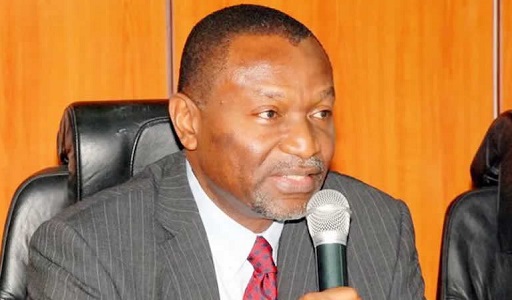Business
Nigerian govt admits nation in debt distress

The Federal Government has admitted that Nigeria is in debt distress as pointed out by the International Monetary Fund (IMF) on Thursday.
The Director of African Department at the IMF, Abebe Selassie, while addressing participants at a special session on African development at the on-going 2018 IMF/ World Bank Group Meetings in Bali, Indonesia, had categorised eight African countries as being in debt distress over rising foreign debt.
Selassie had stressed the need for African nations to constantly monitor their debts and make external borrowing sustainable.
He however did not mention the name of the affected countries, he simply described most of the oil exporting countries in Africa as being engrossed in the ensuing burden.
Africa’s oil producing countries in order of production capacity are, Nigeria, Angola, Algeria, Egypt, Libya, Congo, South Sudan, Chad, Cameroon, Ghana, among others.
Read also: Government to formally address stakeholders on Nigeria Air suspension
The Minister of Budget and National Planning, Sen. Udo Udoma, who spoke at the presentation of the IMF Regional Economic Outlook Report for Sub-Sahara Africa at the ongoing event on Thursday, agreed with IMF’s position and said Nigeria’s debt vulnerabilities was an issue that should be adequately monitored.
A statement by his Special Adviser on Media, Akpandem James, quoted him as saying, “Even though we in Nigeria have one of the lowest debt levels among our African peers, we realise that we need to improve our revenues to bring down our debt service to revenue ratio to more comfortable levels.”
Udoma noted that the Federal Government was deploying some measures for domestic revenue mobilisation and maintaining fiscal discipline, adding that its tax reform policy such as the tax amnesty programme has helped in broadening the nation’s tax base.
“This, among, other measures, has resulted in the number of taxpayers rising from 13 million to over 19 million. We are also deploying technology in tax and customs’ collections to automate processes and enhance efficiencies.
“Our external debt is primarily concessional borrowing, representing 54 per cent of our external debt as of June 2018. The Debt Sustainability Analysis is conducted annually to reaffirm that our public debt stock is sustainable. In Nigeria, our borrowing is being utilised principally to fix our infrastructure,” Udoma said.
RipplesNigeria… without borders, without fears
Click here to join the Ripples Nigeria WhatsApp group for latest updates.
Join the conversation
Opinions
Support Ripples Nigeria, hold up solutions journalism
Balanced, fearless journalism driven by data comes at huge financial costs.
As a media platform, we hold leadership accountable and will not trade the right to press freedom and free speech for a piece of cake.
If you like what we do, and are ready to uphold solutions journalism, kindly donate to the Ripples Nigeria cause.
Your support would help to ensure that citizens and institutions continue to have free access to credible and reliable information for societal development.